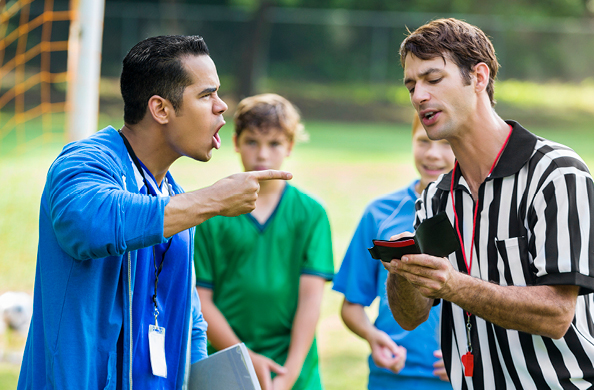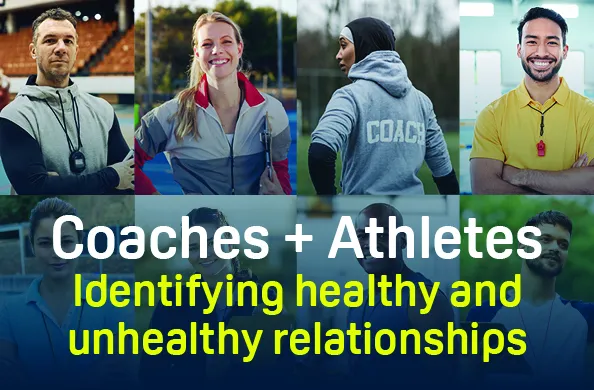Unhealthy behaviour patterns may be hidden from those around an athlete. They can also be misinterpreted as passion for athlete success.
This page helps identify unhealthy dynamics. Awareness and prevention of these patterns of power and control help keep everyone safe.
Read what an unhealthy coach-athlete relationship looks and sounds like.
Coercion and threat

Coercion and threats can look like:
- pressuring athletes to take drugs or alcohol
- threatening athletes about their future or participation
- manipulating and making false or exaggerated promises.
It can sound like:
If you don’t let me drive you home, you won’t get to start the next game.
Physical abuse
Physical abuse can look like:
- cornering and holding athletes
- leaving marks that aren’t easily visible
- grabbing, slamming, shoving.
It can sound like:
You know I will just grab you and make do it.
Manipulation
Manipulation can look like:
- providing extra attention and privileges
- giving special gifts
- oversharing unprofessional feelings.
It can sound like:
I have no one else I can talk to. Noone else gets me like you do.
Intimidation and domination
Intimidation and domination can look like:
- scaring athletes with threats of punishment if they don’t comply
- verbally abusing athletes with demeaning, scary or aggressive tones
- dictating athlete actions and opportunities.
It can sound like:
You’re not getting picked in the team until you lose weight.
Sexual abuse
Sexual abuse can look like:
- pressuring athletes for increased contact
- flirting and inappropriate conversations
- gradually or forcibly making sexual advances.
It can sound like:
Will you send me some photos? You look so great.
Minimising, denying and blaming
Minimising, denying and blaming can look like:
- making light of own inappropriate conduct if athletes voice concerns
- dismissing that misconduct or abuse is occurring or has occurred
- putting blame on athletes.
It can sound like:
This is your fault, no one will believe you.
Isolation and possessiveness
Isolation and possessiveness can look like:
- keeping athletes separate from others, forcing solo interactions
- telling athletes to keep interactions secret
- pressuring athletes, telling them this coaching is their only hope of success.
It can sound like:
Don’t tell anyone else about our special conversations.
Emotional abuse
Emotional abuse can look like:
- playing manipulative mind games
- gaslighting, leading athletes to question their own perceptions
- humiliating, guilting and shaming.
It can sound like:
That never happened, you are crazy.
Coach-athlete relationships factsheet
